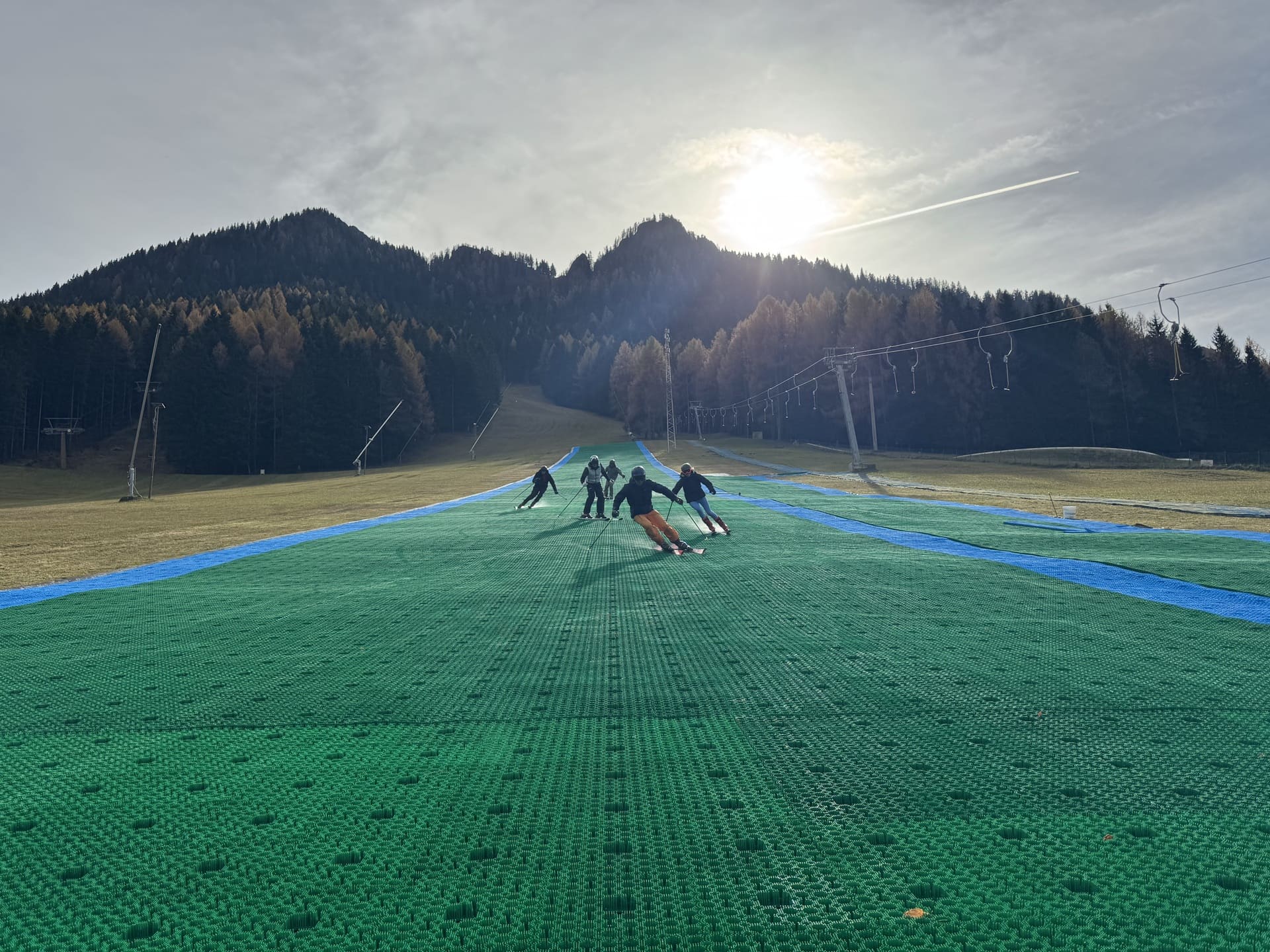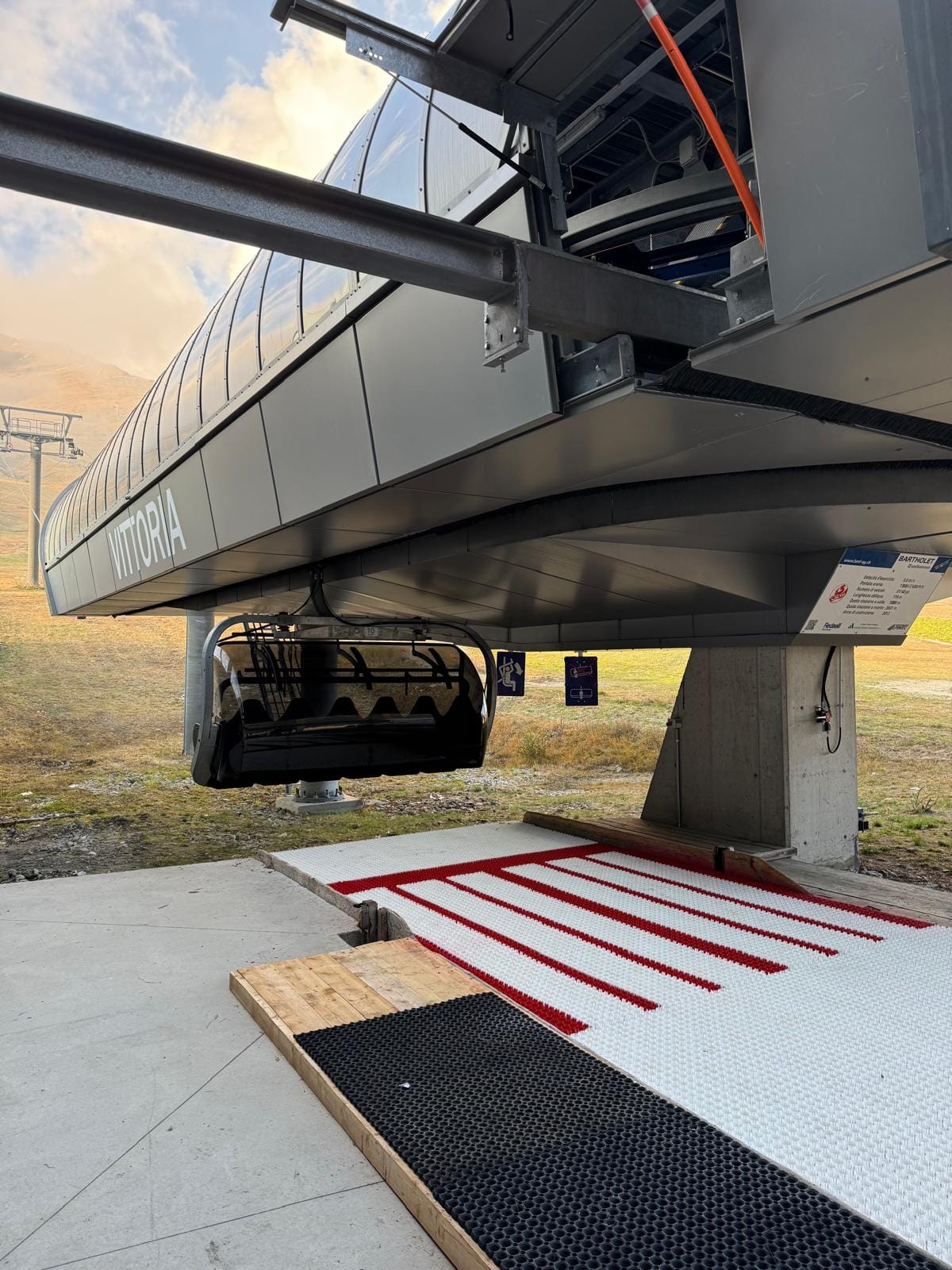Neveplast Green
Environmental Sustainability
Founded in 1998, Neveplast specializes in creating synthetic ski slopes and plastic materials, and is a leading player in recreational activities typically done on snow, such as tubing, sklide, and drifting karts. Over 25 years, Neveplast has evolved into an export-oriented company, internationally recognized for excellence, while maintaining its family business identity rooted in Bergamo, Italy.
Despite the challenges posed by the pandemic, Neveplast has seen business growth and has accelerated its focus on environmental sustainability. The company's green philosophy has always been part of its DNA, continuously adapting its operations to comply with increasing environmental regulations and adopting more eco-friendly practices.
Neveplast products are environmentally virtuous in several ways: they do not disperse into the environment and are fully regenerable. Once a ski slope's lifecycle ends, it can be transformed and reused. Additionally, the installations do not require electricity or water, except in the case of very long slopes where minimal water is used through misting. Neveplast slopes in urban areas also promote sustainable mobility, serving as easily accessible skiing venues via public transport.
Commitment to Green Innovation
Niccolò Bertocchi, CEO of Neveplast, stated: "Our goal in pursuing increasingly green development is to find the right balance between renewable sources and secondary raw materials with increasingly sustainable products. Two years ago, we launched a new version of our flagship product for ski slopes, NP30 Freeski Sustainable, which was used for a project in Stockholm."
Carbon Footprint
Neveplast has completed the calculation of its organizational carbon footprint for the year 2021, according to ISO 14064-1 standards. This study measures the total greenhouse gas emissions produced directly and indirectly by the organization's activities over a specific period.
Based on this analysis, Neveplast aims to reduce its CO₂ emissions. This initiative is the first step in a broader sustainability strategy. The long-term goal is to achieve higher environmental and social standards, responsibly reduce waste, and meet the United Nations' Sustainable Development Goals set in the 2030 Agenda on climate change.





